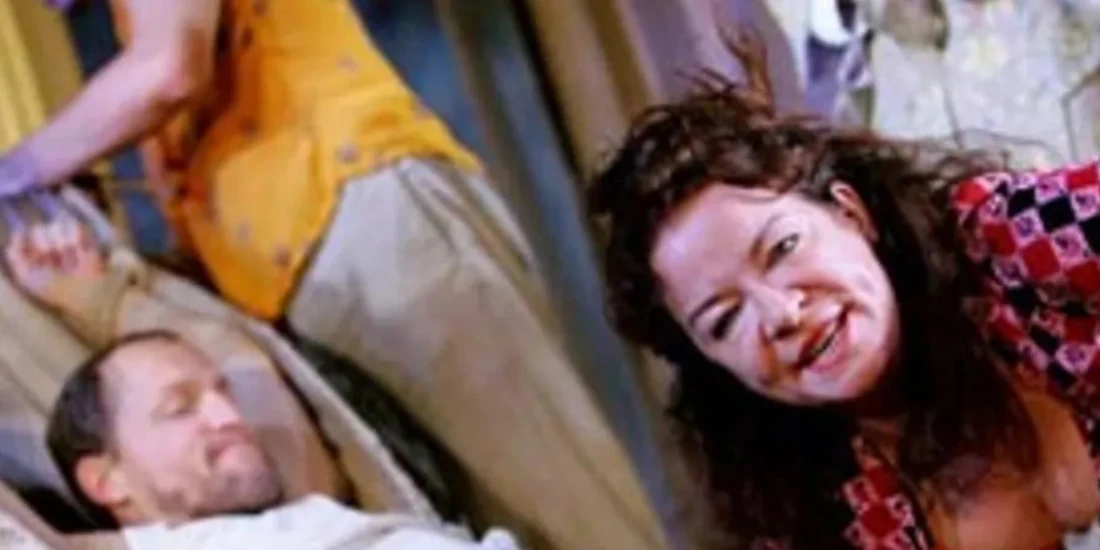Night of the Iguana
When I told a friend that I was seeing this play he said "I couldn't go to a play with a title like that!" Apparently, he's terrified of lizards and indeed reptiles of any kind. It just goes to show that titles can be very powerful, and arouse all kinds of undesirable reactions in those who read them. But my friend needn't have worried, because the iguana in question is seen only very briefly and, as far as I could tell, was not a live specimen.
Written by Tennessee Williams in 1961, 'The Night of The Iguana' is set in a Mexican beach side hotel, the Coste Verde, in 1940. Out of season, the hotel has only a couple of fanatical German guests who eagerly follow the news that London is suffering under the continual pounding of the Nazi blitz. In fact, both the setting and the German guests are based on Williams's experiences of the time - according to his memoirs, he stayed in a hotel in Mexico with the same name near Acapulco.
The hotel is run by the recently widowed, Maxine Faulk (ably played by Clare Higgins). She seems unmoved by her husband's untimely death, at least in part because they hadn't had sex for 10 years, and responds with smouldering eagerness to the arrival of Shannon (Woody Harrelson), a former priest who was locked-out of his church because of his involvement with young girls and for preaching blasphemy.
Currently employed as a holiday tour guide, Shannon is tormented by guilt, his inner demons and his desire to 'do good'. As he arrives at the hotel, he's on the verge of emotional collapse, seeking a kind of last refuge at the hotel, and the remainder of the play describes his path towards breakdown during one stormy night.
Shortly after Shannon's arrival, two other impecunious guests fetch-up at the hotel - an artist, Hannah Jelkes, and her ageing poet grandfather, who roam the world existing on occasional sales of Hannah's drawings and watercolours. Contrasting with Shanon's manic condition, Hannah has an almost spiritual and serene acceptance of her lot, and it's her compassion and empathy with Shannon's emotional loneliness that provides some element of resolution.
In the lead role, Harrelson gives a competent performance as the tortured Shannon, but doesn't quite reach the depth of intensity that the character's suffering requires. But Harrelson does manage to pull-off the shifts between raging turmoil and subtle wit that Williams brilliantly wove into the dialogue.
There's good support from Jenny Seagrove as Hannah, even though she looks rather too beautiful to be a convincing middle-aged spinster. And Clare Higgins produces a highly successful portrayal of obvious, if not flagrant sexuality and desire, without cheapening the character.
On the downside, Anthony Ward's set has rather too much of 'Hawaii Five-O' about it- far too colourful in my opinion to provide the kind of intense, claustrophobic atmosphere that this play demands. And Anthony Page's rather static direction did little to add to the intensity of the piece.
Written more than 40 years ago, 'The Night of The Igunana' still has a freshness, intensity and relevance that modern audiences can certainly appreciate. It's a complex and thought-provoking play about compassion, loneliness and guilt, as well as the general human condition. It's an unsettling play, dealing with the darker side of human experiences and emotions that many of us might wish to leave unexplored. But it is the work of a master craftsman, and on that score alone, is certainly worth seeing.
What the popular press had to say.....
NICHOLAS DE JONGH for THE EVENING STANDARD says,"Trapped in loquacious inertia, bleakly humorous, but without the impetus of action...an intelligent new version" PAUL TAYLOR for THE INDEPENDENT says, "Anthony Page's accomplished, largely persuasive revival." MICHAEL BILLINGTON for THE GUARDIAN says, "Sluggish...Page's production lays on the atmosphere without giving the play much inner momentum." CHARLES SPENCER for THE DAILY TELEGRAPH says, "there is so much here that is wild and brave, heartfelt and savagely funny, that it would take a peculiarly desiccated heart not to thrill to Williams's scorching emotional honesty." BENEDICT NIGHTINGALE for THE TIMES says, "A scratching, scrabbling iguana." PETER HEPPLE for THE STAGE says, "I saw The Night of the Iguana on its first British performance at Croydon 40 years ago and at the National nearly 30 years later. I have to say that, another 13 years on, it seems less impressive each time I have witnessed it."
External links to full reviews from popular press
The Independent
The Guardian
The Stage
The Times
Daily Telegraph
Originally published on
